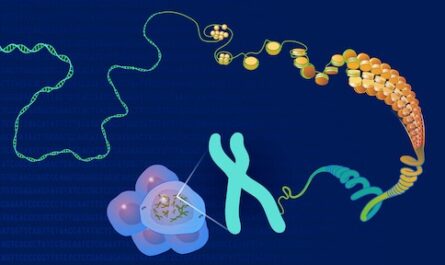Urea cycle disorders are a group of rare genetic disorders that affect the body’s ability to remove ammonia from the blood. The urea cycle is a process in the liver that transforms toxic ammonia, which is produced as a byproduct of protein digestion, into urea that can be removed from the body through urine. A defect or missing enzyme in this cycle results in urea cycle disorders.
Causes of Urea Cycle Disorders
Urea cycle disorders are inherited in an autosomal recessive manner, meaning that both copies of the gene in each cell have mutations. If a person inherits one copy of the mutated gene from each parent, they will have the urea cycle disorder. There are six known enzyme deficiencies that cause Urea Cycle Disorder Treatment. Each is caused by mutations in a specific gene that codes for one of the urea cycle enzymes. These include:
– N-acetylglutamate synthase (NAGS) deficiency
– Carbamoyl phosphate synthetase I (CPS1) deficiency
– Ornithine transcarbamylase (OTC) deficiency
– Argininosuccinic acid synthetase (ASS) deficiency
– Argininosuccinic acid lyase (ASL) deficiency
– Arginase (ARG) deficiency
Symptoms of Urea Cycle Disorders
The signs and symptoms of a urea cycle disorder depend on which enzyme is deficient or missing but may include:
– Lethargy
– Loss of appetite
– Vomiting
– Seizures
– Developmental delays
– Coma
– Lethargy and poor feeding in infants
– Behavioral and psychological problems
– Sensitivity to protein intake
Urea cycle disorders are treated with several therapies including dietary therapy, medications, supplements and nitrogen scavengers. Emergency treatment through intravenous medications and nutrition may also be required if symptoms are severe. Some key aspects of urea cycle disorder treatment include:
Low-Protein Diet Therapy
Dietary therapy involves limiting protein intake to reduce ammonia production while still meeting developmental and growth needs. Essential amino acids are given in amounts that avoid accumulation of toxic substances. Medium-chain triglyceride oil supplements provide calories without protein.
Supplementation and Medications
Medications are used to supplement or replace the missing or deficient enzyme. This includes enzymes like sodium phenylbutyrate and glycerol phenylbutyrate. Some disorders also require supplementation with arginine and citrulline to help remove excess ammonia.
Nitrogen Scavenging with Sodium Benzoate or Sodium Phenylbutyrate
If ammonia levels remain elevated despite other treatment, nitrogen scavenging drugs help remove nitrogen from the blood in the form of hippurate or phenylacetylglutamine respectively.
Hyperammonemia Treatment
Hospitalization may be required in cases of dangerously high ammonia levels or other emergencies. Treatment includes managing blood ammonia levels through medications, intravenous nutrition and hemodialysis to clear toxins from blood.
Liver Transplantion
After other treatments fail to adequately control symptoms, liver transplantation may be considered as it replaces the diseased liver and corrects the urea cycle defects. However, transplant is a major procedure with risks that require careful consideration.
Long-Term Management
Lifelong management is needed to prevent complications from recurring crises. This involves meticulous dietary protein restriction, medication compliance, careful monitoring for signs of decompensation, avoidance of catabolic stress and immediate evaluation and treatment of any intercurrent illnesses. Genetic counseling is also important for families.
Urea cycle disorders require lifelong multidisciplinary care from metabolic specialists, dietitians, nurses and other healthcare professionals. With optimal individualized treatment and management, quality of life can be improved and complications minimized for many patients. Continued research also aims to develop improved therapies.
This article has outlined the key aspects of urea cycle disorder treatment including causes, symptoms and treatment approaches. Adhering to a multidisciplinary care plan that actively manages all aspects of the condition can help patients with urea cycle disorders live healthy lives. Further developments may expand treatment options in future.



